One Life
 for thematic material, smoking and some language.
for thematic material, smoking and some language.
Reviewed by: Keith Rowe
CONTRIBUTOR
| Moral Rating: | Good |
| Moviemaking Quality: |
|
| Primary Audience: | Teens Young-Adults Adults |
| Genre: | Biography History Drama Adaptation |
| Length: | 1 hr. 49 min. |
| Year of Release: | 2024 |
| USA Release: |
Septenber 9, 2023 (film festival) March 15, 2024 (wide release—983 theaters) DVD: May 14, 2024 |
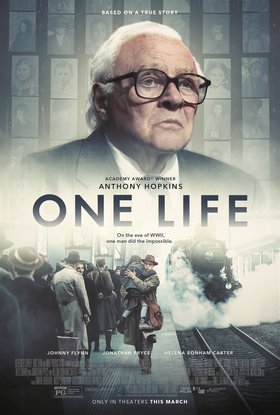

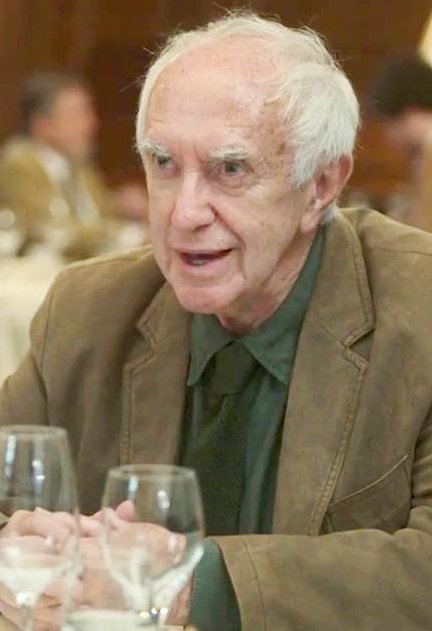
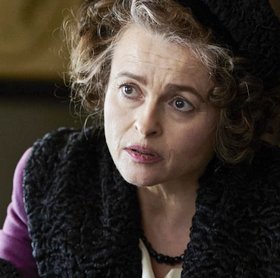
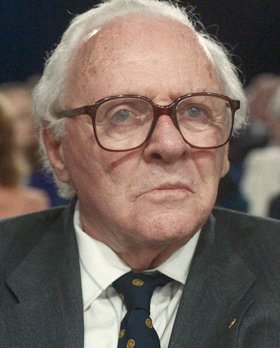
Setting: Britain (1980s) and Prague, Czechoslovakia (1938)
Nazi invasion of Czechoslovakia / World War II
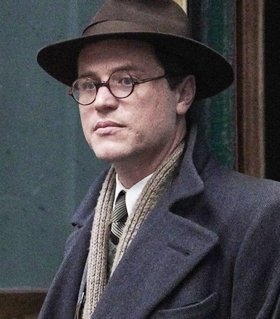
Nicholas George Winton (May 19, 1909 – July 1, 2015)
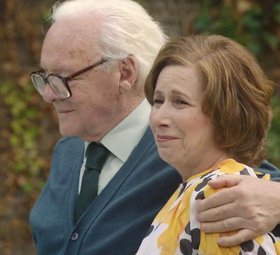
Based on a book about real people
Central European history
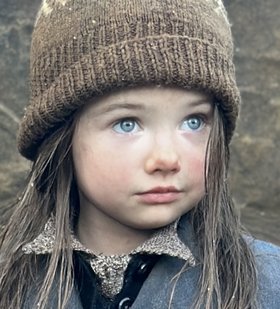
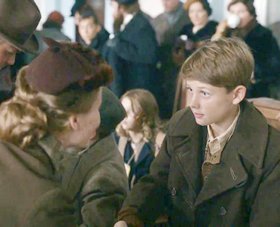
Protecting Jewish refugee children / Rescuing those at risk of being murdered by Nazi Germany during the Holocaust
Humanitarian, philanthropist
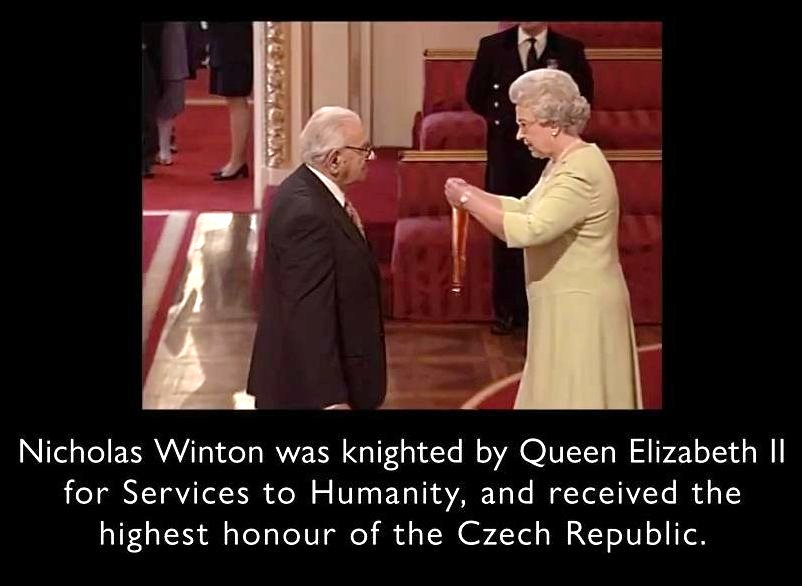
Nicolas Winton was knighted by Queen Elizabeth II for Services to Humanity, and received the highest honor the Czech Republic.
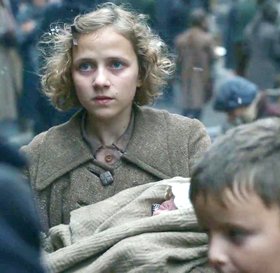
- Alf Dubs, Baron Dubs, British Labour Party politician and former Member of Parliament
- Heini Halberstam, mathematician
- Renata Laxova, paediatric geneticist
- Isi Metzstein, modernist architect
- Gerda Mayer, poet
- Karel Reisz, filmmaker
- Joe Schlesinger, Canadian TV journalist and author
- Yitzchok Tuvia Weiss, Chief Rabbi of the Edah HaChareidis in Jerusalem
- Vera Gissing, writer and translator
Why does God allow innocent people to suffer?
What about the issue of suffering? Doesn’t this prove that there is no God and that we are on our own? Answer
ORIGIN OF BAD THINGS—Why are they in our world if a good God created us? Answer

Why is the world the way it is? If God is all-knowing, all-powerful, and loving, would He really create a world like this? (filled with oppression, suffering, death and cruelty) Answer
 Who is Anthony Hopkins?
Who is Anthony Hopkins?
| Featuring |
|---|
|
Anthony Hopkins … Nicky Winton (Nicholas George Winton) Lena Olin … Grete Winton Johnny Flynn … Young Nicky Winton Helena Bonham Carter … Babi Winton Jonathan Pryce … Martin Blake Romola Garai … Doreen Warriner See all » |
| Director |
|
James Hawes |
| Producer |
|
See-Saw Films [Great Britain] MBK Productions [Great Britain] BBC Film [Great Britain] See all » |
| Distributor |
 Bleecker Street Media |
“On the eve of WWII, one man did the impossible.”
“One Life” chronicles the extraordinary true story of Nicholas “Nicky” Winton (Johnny Flynn), a young stockbroker at a London bank, who rescues hundreds of children from the streets Prague on the eve of World War II.
Fifty years later, old Nicky (Anthony Hopkins) reflects on his earlier exploits, which are dramatized in a series of flashbacks. Nicky’s wife Grete (Lena Olin), tells him it’s time to let go of the past. While she’s away on a trip, Nicky drags dozens of file boxes from his study to the front yard, where he turns the mound of historical documents into a bonfire (an ironic twist on Nazi book burning).
The one item from the past Nicky just can’t bring himself to part with is a leather briefcase that contains a scrapbook of all the children he helped rescue. Nicky presents the scrapbook to a local London newspaper, but a decades-old account of Jewish children being rescued from another country fails to pique the editor’s interest.
When Nicky meets with a museum director, she says the scrapbook is too important for her collection, but asks if she can borrow it. That decision creates a chain of events that brings Nicky face-to-face with his legacy.
I must admit, I knew nothing about this film before I went to see it; Anthony Hopkins was on the poster and I’d gladly pay to hear him read binary code (formerly: “from a telephone book”) for two hours. A consummate craftsman, Hopkins is, in my estimation, the finest living actor on planet Earth. And, despite only appearing in about half the movie, the octogenarian delivers an authentic portrait of a man tormented by the lives he couldn’t save.
Also impressive is Helena Bonham Carter, who plays young Nicky’s mother, Babette “Babi” Winton. Unfairly typecast for her off-kilter roles in many of Tim Burton’s films, Bonham Carter is a really good dramatic actress. Here, her “Not gonna’ take no for an answer” characterization is finely-calibrated—otherwise Babi’s assertiveness could’ve come off as bullying.
The rest of the cast, including Jonathan Pryce as Nicky’s long-time friend, Martin, and Romola Garai as the spirited leader of the refugee committee in Prague, is also excellent. Flynn has the movie’s most pivotal role as the younger version of Hopkins; fortunately, he’s up to the task and credibly, if not slavishly, mimics the speech and mannerisms of the veteran actor.
Despite a slow start, the story begins picking up steam when young Nicky visits Prague. The crosscutting between the movie’s two time periods helps sustain viewer interest; the mostly urgent, mission-driven scenes set in the late 30s serve as an appropriate counterbalance to the largely contemplative, character-driven scenes set in the late 70s.
Though director James Hawes makes the most of his UK and Czech Republic locations, he isn’t able to elevate the look of the film above its modest budget. Still, with a story (written by Lucinda Coxon and Nick Drake, based on the book If It’s Not Impossible…: The Life of Sir Nicholas Winton by Barbara Winton, this strong and performances this good, a bigger budget and more lavish production would’ve upstaged the film’s poignant message.
I’ve intentionally restrained myself from discussing the movie’s impactful climax, because I don’t want to spoil it, or detract from it, in any way. Suffice it to say, if you leave the theater unmoved, you either have no conscience or no pulse.
Spiritual Aspects
Early in the movie, young Nicky gives a Jewish rabbi (and the audience by extension) a glimpse into his background. Though some of his relatives are Jewish, he was baptized into the Church of England. Despite his checkered religious history, Nicky considers himself an agnostic. Perhaps because Nicky has volunteered to rescue Jewish orphans, the rabbi considers him a Jew.
Q & A
How to effectively share your faith with a Jew
How to witness to atheists
How can we know there’s a God? Answer
What if the cosmos is all that there is? Answer
Though there’s no condemnation for those who are in Christ (Romans 8:1), it should serve as motivation for God’s people that if someone who doesn’t even believe in God should go to such lengths to rescue the innocent and dying, how much more should we assist those who are sick and lost? After all, the Bible defines “pure religion” as looking after orphans and widows (James 1:27).
Before Nicky travels to Prague, the rabbi admonishes him to finish what he starts. Though faced with near-impossible odds, Nicky’s determination allows him to honor his promise. Just as Nicky was faithful in completing his task, so too was Jesus when He died on a Roman cross for the sins of humanity (John 19:28-30). Now His work, spreading the Good News to all nations, continues through us. Indeed, those who believe in God can have confidence in knowing “that he who began a good work in you will carry it on to completion until the day of Christ Jesus” (Philippians 1:6).
From a young age, Nicky’s mother instilled in him a desire to help those in need. This “if you see a need, lend a hand” mentality compelled Nicky to help the refugees in Prague. All told, his efforts led to the rescue of 669 children who were transported on eight trains—a ninth train, with over 200 children aboard, never arrived because Hitler’s invasion of Poland ignited World War II. The children from the failed mission, many of whom ended up in concentration camps, weighed heavily on Nicky’s conscience for the rest of his life.
Nicky’s nagging melancholia over the people he wasn’t able to save mirrors the titular character’s plight in “Schindler's List” (1993). In a haunting scene at the end of that film, Oskar Schindler (Liam Neeson) laments the fact that he could’ve rescued more people; he calculates how many more lives could’ve been saved had he sold his watch and car. Despite the crushing weight of underachievement, both men secured a lasting legacy, namely the descendants of the people (largely Jewish) they saved.
By risking his life to protect those in harm’s way, Nicky exhibited a messianic quality: he left his comfortable life in London to walk among the wounded and diseased in the streets of Prague, just as Jesus left heaven to walk among the sick and dying in the streets of Judea, Samaria and Galilee. Of course, that’s as far as the analogy extends, since Nicky was a mere human, whereas Jesus is the Son of God.
Q & A
Is Jesus Christ really God? Answer
Is Jesus Christ God, manifest in human form? Answer
Is Jesus Christ a man, or is he God? Answer
TRINITY—How can one God be three persons? Answer
MIRACLES—Has science disproved the miracles associated with Jesus Christ? Answer
If Jesus is God, how could he die? If Jesus died on the cross, then how can he be alive today? Answer
If Jesus was the Son of God, why did He call Himself the Son of Man? Answer
One of Nicky’s many commendable qualities was his selflessness. Nicky was quick to credit his mother and support team members in the London and Prague offices with assisting him in rescuing the refugees. He also was humble—his story could’ve made him famous, but it wasn’t until Martin urged him to donate the scrapbook to a museum that the remarkable rescue effort he spearheaded in his younger years came to light.
Though set decades in the past, the movie has more than just a little relevance to current events. With antisemitism on the rise and “wars and rumors of wars” (Matthew 24:6) raging in Israel and other countries around the world, this film is a timely reminder of the dangers of placating evil and vilifying any race or group of people. Though it’s easy to give into fear, we should take heart, for…
“When these things begin to take place, stand up and lift up your heads, because your redemption is drawing near.” —Luke 21:28
Objectionable Material
OFFENSIVE LANGUAGE/VULGARITIES: Though the movie only has a few swear words, including d*mn (1) and sh*t (1), it also contains some irreverent speech like “Chr*st” and “G*d’s sake.” British swear words, such as “bollocks,” “crikey,” and “bloody,” are occasionally heard in the film. Unfortunately, the movie also has some antisemitic remarks. In one scene, Nazi soldiers snidely ask why England wants to save Jewish children.
ALCOHOL/DRUGS: Some people are seen smoking in various scenes. Several people drink shots of alcohol in a bar. When Nicky and Martin meet for lunch, they order a bottle of wine.
NUDITY AND SEXUAL CONTENT: There’s no nudity or sex in the movie. We see a married couple kiss a few times. In one scene, a man wearing only swim trunks dives into a pool.
VIOLENCE AND GRAPHIC CONTENT: The Prague scenes show glimpses of adults and children living in squalor on the city streets. We’re told that these refugees are freezing and starving, and some are dying of diseases. During one heartbreaking moment, a woman cries over her dead infant.
There’s talk (no visuals) of adults and children being tortured and taken to concentration camps. Some Nazi soldiers force people off a train, including a redheaded woman who’s grabbed by her hair and dragged down the train platform.
Many of the thumbnail headshots in Nicky’s scrapbook are deeply affecting, especially those of the individuals who never arrived in London.
Final Thoughts
“One Life” boasts tremendous performances and a riveting true story of courage in the face of unspeakable evil. It’s also a powerful reminder of how many people can be positively impacted by just one life.
Despite its disturbing themes and images, “One Life” is an inspirational movie that should be seen by everyone… lest we forget the horrors of war and repeat the mistakes of the past.
- Profane language: Moderate
- Vulgar/Crude language: Mild
- Violence: Mild
- Drugs/Alcohol: Mild
- Nudity: None
- Sex: None
- Occult: None
- Wokeism: None
See list of Relevant Issues—questions-and-answers.


PLEASE share your observations and insights to be posted here.

My Ratings: Moral rating: Excellent! / Moviemaking quality: 4½